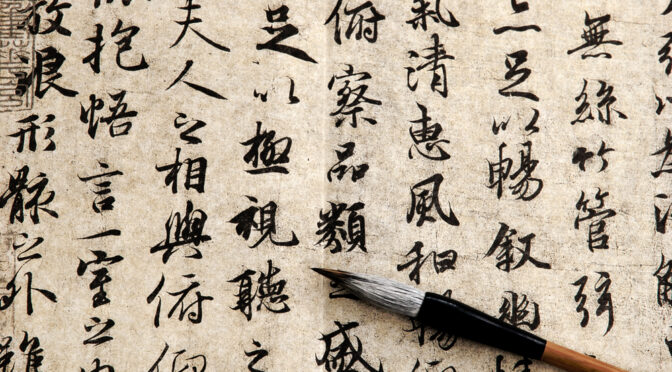Tao the Ching translates to The Classic Book of The Supreme Reality and its Perfect Manifestation, or The Book of the Way of Virtue. It contains deep wisdom in condensed form.
This short book – written by Chinese Sage Lao Tzu in the 6th century B. C. – is an ancient attempt to point us towards Truth.
Read my explanation of the 1st verse here.
VERSE 2
Everyone recognizes beauty
only because of ugliness
Everyone recognizes virtue
only because of sinLife and death are born together
Difficult and easy
Long and short
High and low—
all these exist together
arrive together
Sound and silence blend together
Before and after* * *
The Sage acts without action
and teaches without talking
All things flourish around him
and he does not refuse any one of them
He gives but not to receive
He works but not for reward
He completes but not for results
He does nothing for himself in this passing world
so nothing he does ever passes
Breakdown of Verse 2
Everyone recognizes beauty
only because of ugliness
Everyone recognizes virtue
only because of sinLife and death are born together
Difficult and easy
Long and short
High and low—
all these exist together
arrive together
Sound and silence blend together
Before and after
This part explains the polarity within this world of forms. Opposites cannot exist divided. No good without bad. No life without death. No long without short.
Everything is relative, everything is paradoxical. Everything is inherently neutral.
Opposites attract, and they are born together as one. Polarities are often pulled to the extreme – forcing us to take closer look at them – before they again merge as one, returning home to the unity they never really left. This can be seen as the cyclic nature of Life. To see that every polarity is inseparable brings peace.
We live in a world of duality – we use reference points to distinguish between good and bad. But on a deeper level, everything is One.
The Sage acts without action
and teaches without talking
All things flourish around him
and he does not refuse any one of them
He gives but not to receive
He works but not for reward
He completes but not for results
He does nothing for himself in this passing world
so nothing he does ever passes
The Sage is frequently mentioned in Tao Te Ching. The Sage is someone like you and me – not a person elevated above the rest of mankind – but he or she has achieved true wisdom.
The Sage does nothing for himself in this passing world, yet he does not refuse any of the things that flourish around him.
To feel guilty about your own happiness and well-being is like saying that you are the only being not part of the rest of existence. It is the ultimate egoic statement.
Cherish anything that fills up your experience of life. If you do not refuse any of that, your sense of fulfilment starts to merge with your environment; you are expanding your personal bubble to include more than you-as-a-separate-being – you move from separation to unity.
If you have a non-separate view you can be ecstatic to give. You see that when you give, another portion of the same creation – the one you are a part of – receives. You see that what helps others is helping you, is helping everything, is helping life, is helping the Whole.
Doing things for yourself, is not doing things for yourself – it is doing things for everyone and everything.
Such an expanded point of view brings great passion that will leave a trail for others to be inspired from. It will never pass.
____________________________________
Next time we’ll look at verse 3!
About the author:
Vegard Paulsen is co-founder of Global Harmony Crew; a movement to transform the world through pointing people towards realizations of Truth, and helping them manifest their lives from love and joy.
Let’s move from separation to Unity together, and wake up this world in ecstatic joy!
Subscribe to their emails and get their course “Master Your Inner Peace” for free.
Follow Global Harmony Crew on Facebook.
____________________________________
Resources:
Translation of Tao Te Ching by Jonathan Star, found here.

